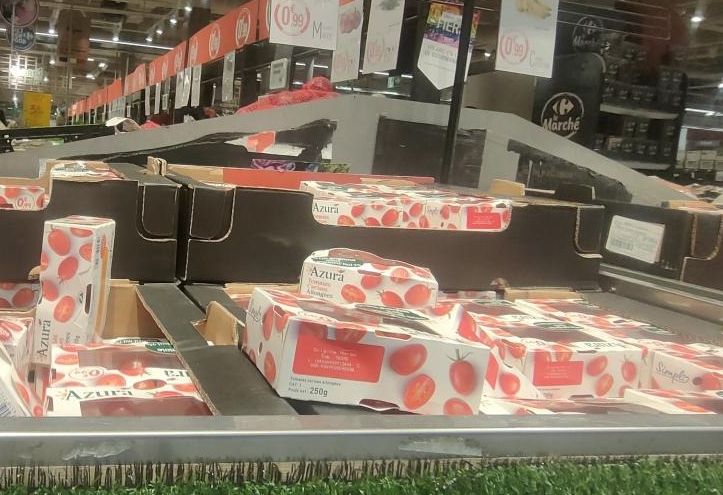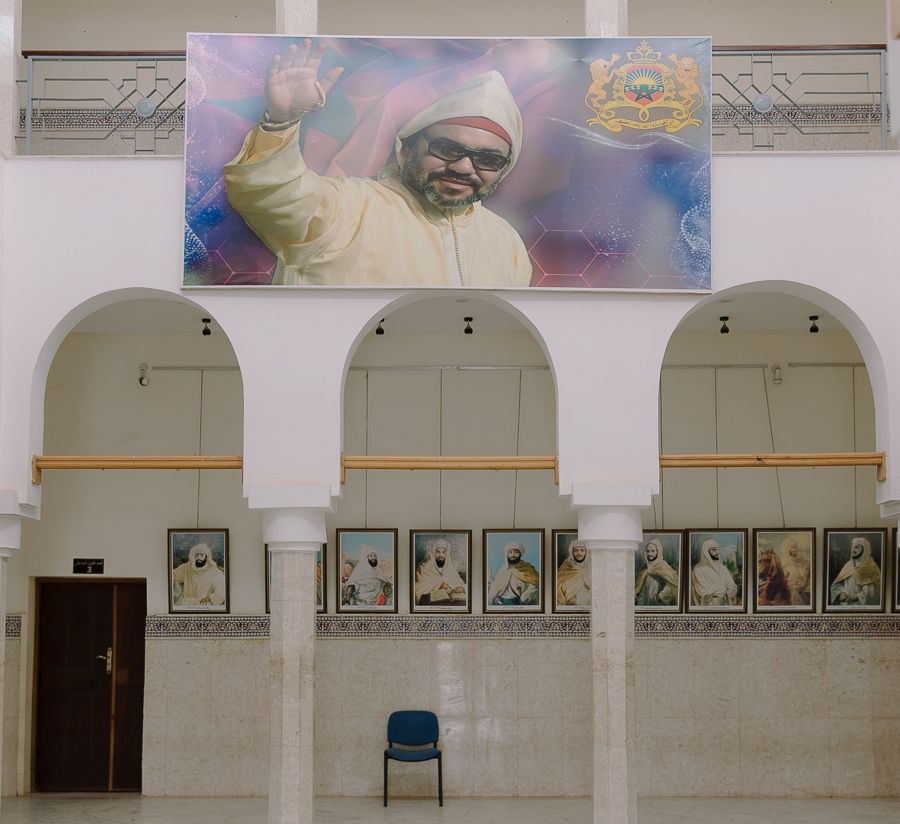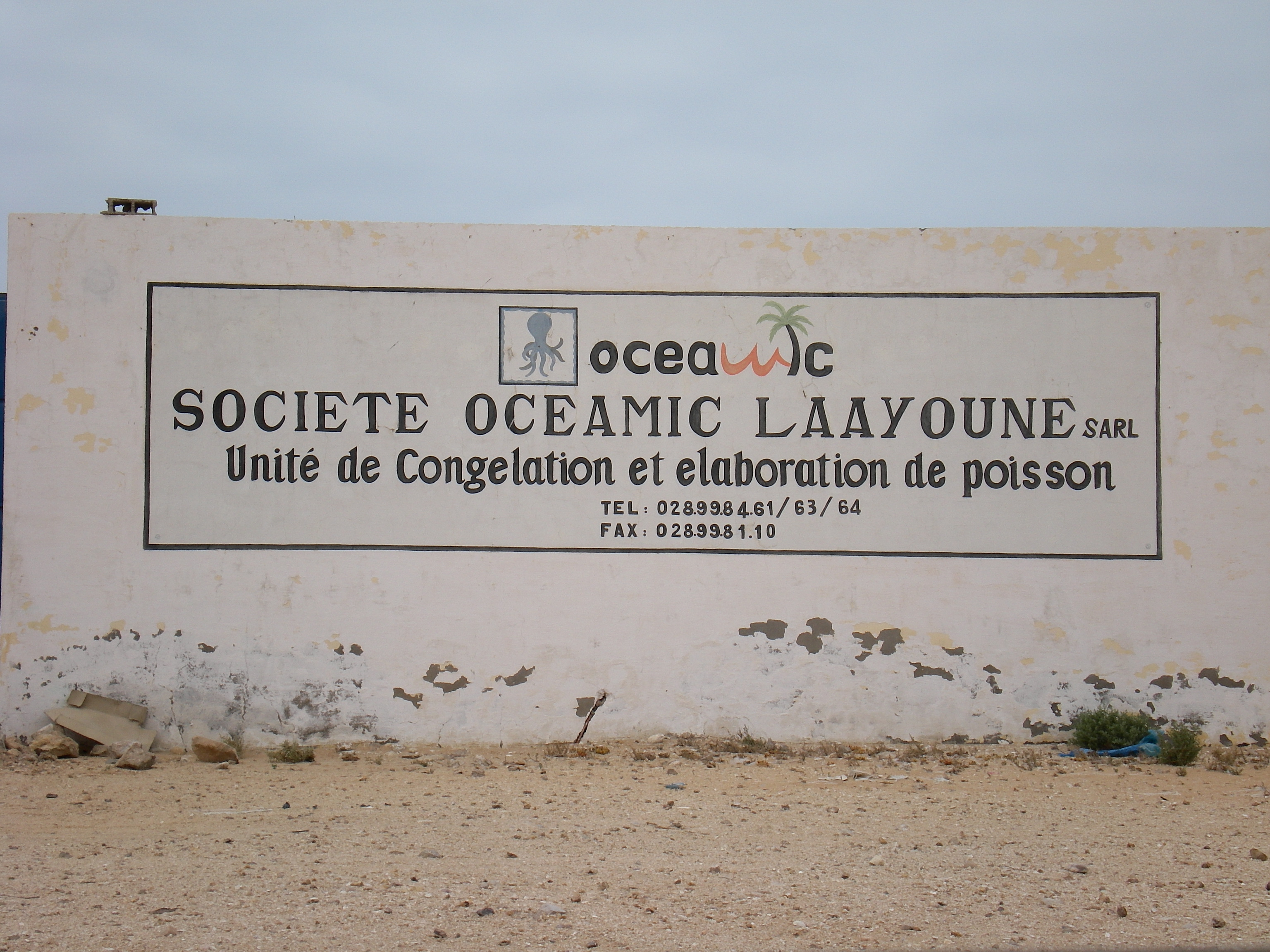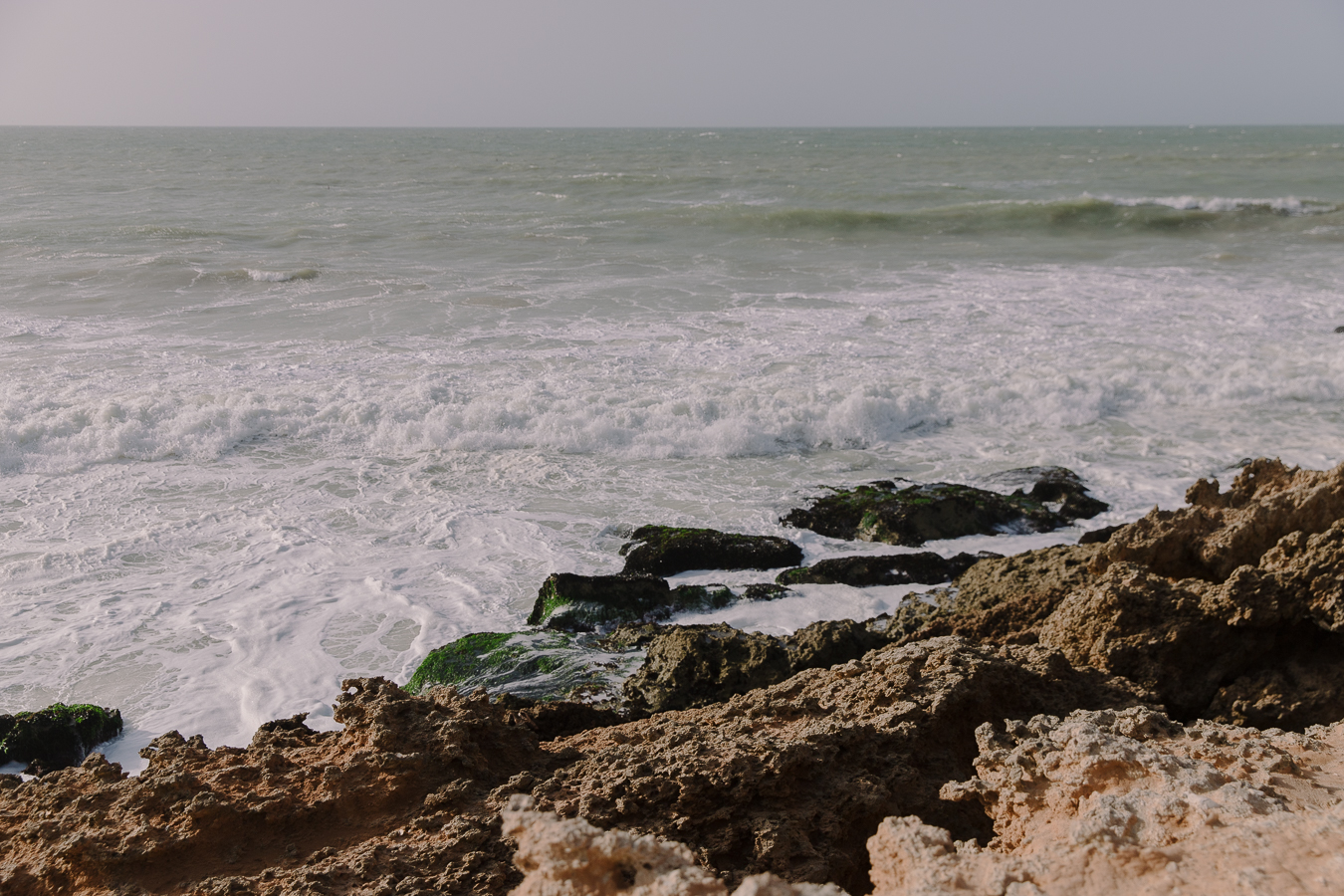
Spanish farmers and a consumer rights watchdog have filed a formal complaint with their national consumer authorities, accusing French retailer Carrefour of deceptively marketing Azura-brand tomatoes from Western Sahara as “Moroccan”.
Picture: French supermarket Carrefour sells Azura tomatoes in several EU countries. Here are Azura tomatoes found in a Carrefour shop in France, 2025.
On 21 July, the Spanish Federation of Consumers and Users (CECU) and the national farmers’ union COAG announced that they have filed a complaint with Spain’s Directorate-General responsible for Consumer Affairs. The two organisations request an investigation into the "alleged non-compliance" with labeling regulations by the company Azura, which, “despite having more than 400 hectares of greenhouses in Western Sahara, sells its cherry tomatoes in supermarkets across the European Union as originating from Morocco”.
"Specifically, we have detected the sale of these products in Spain in several Carrefour stores, a situation that has already been reported in France and is also occurring in Spain," the joint statement reads.
For years, farmers from across southern Europe have been sounding the alarm bell on what they consider unfair competition: tomatoes produced in Morocco don’t have to meet the same high environmental and labour standards as those grown in the EU, resulting in lower production costs, and thus lower prices.
Adding to this, a considerable share of the tomatoes exported by Morocco are actually tiled in occupied Western Sahara, but are sold as coming from “Morocco”. These tomatoes enter the EU market under the preferential tariff terms granted through the EU-Morocco trade deal, even though Western Sahara is not Morocco.
Such practices not only undermine EU producers, but also violate EU law. On 4 October 2024, the EU Court of Justice once again confirmed that the EU-Morocco trade agreement is null and void in Western Sahara, as the territory is separate and distinct from Morocco, and because Morocco has no sovereignty or administering mandate over it. The Court allowed the deal to remain operational for one year, until 4 October 2025, after which products from Western Sahara can no longer be exported to the EU under the tariff preferences accorded to Morocco. In a separate ruling on the labelling of Western Sahara products, issued the same day and effective immediately, the court ruled that fisheries and agricultural products from Western Sahara cannot be sold as if they are made in Morocco.
In addition to marketing agricultural products, Azura is involved in exports of seafood. See an example of false country information on Azura’s website [or download]
The formal complaint was already covered by Spanish newspaper El Mundo. Carrefour commented to a news outlet that it “complies with its product labelling and traceability obligations”, expressing its “full willingness to address and implement any new labelling or regulatory requirements”.
Western Sahara Resource Watch wrote to Azura in December 2024 to raise concerns about the firm’s marketing practices, without obtaining a response.
Meanwhile, Morocco’s tomato industry continues to expand rapidly. In 2024, Morocco overtook Spain as the second-largest tomato supplier to the EU, up 17.7% percent from the previous year in terms of volume. Between 2015 and 2024, Morocco’s tomato sales to the EU grew at an average annual rate of 4.9 percent, with export earnings more than doubling over the same period.
Agricultural production in occupied Western Sahara is set to expand dramatically in the coming years. Under contract with the Moroccan government, Engie is developing a large-scale desalination project in Dakhla. The initiative aims to increase the region’s irrigated farmland fivefold, potentially expanding the area under cultivation by 500%.
Since you're here....
WSRW’s work is being read and used more than ever. We work totally independently and to a large extent voluntarily. Our work takes time, dedication and diligence. But we do it because we believe it matters – and we hope you do too. We look for more monthly donors to support our work. If you'd like to contribute to our work – 3€, 5€, 8€ monthly… what you can spare – the future of WSRW would be much more secure. You can set up a monthly donation to WSRW quickly here.
New report: Certified occupation
International certification standards embellish Morocco’s controversial trade with fisheries and agricultural products in occupied Western Sahara, new report documents.
Azura dives deep into politics
The French-owned Azura Group, a producer of agricultural and aquaculture products in occupied Western Sahara, has taken a remarkably political stance - openly praising Morocco’s “national cause” and “territorial integrity.”
BRCGS fails accountability test
Despite repeated requests, the organisation does not clarify why its food safety certificate ignores legal boundaries.
ASC withdraws from occupied Western Sahara
Certification scheme ends involvement with Azura Group and declares that no future certifications will be granted to companies in the occupied territory.



